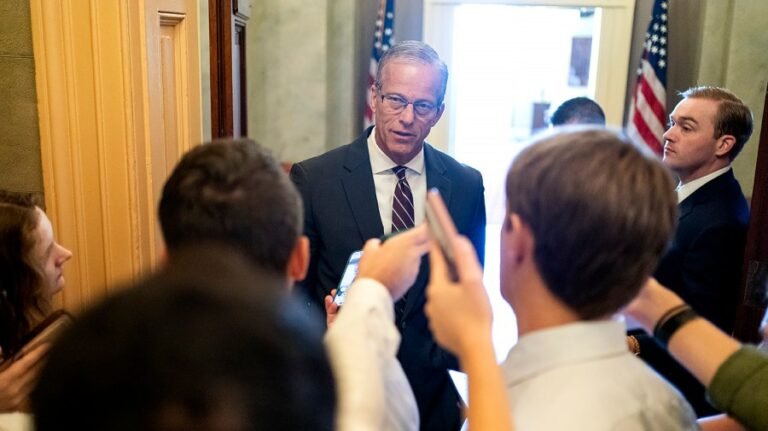
More than half of American adults — 59 percent — say they do not expect to get the COVID-19 booster shot this autumn, according to new poll findings from healthcare policy group KFF.
Poll results show that 23 percent of U.S. adults say they will “probably not” get the vaccine, while 37 percent will “definitely not” get the shot.
Americans who said they will “probably” or “definitely” not get the shot were also more likely to say they think changes to U.S. vaccine policy are “major” and will make people less safe.
The data comes as the Trump administration makes drastic changes to the country’s vaccine policy.
Secretary for the Department of Health and Human Services Robert F. Kennedy Jr. announced earlier this year that the COVID-19 shot will no longer be recommended for healthy children and pregnant women.
Kennedy also abruptly fired all 17 members of an independent vaccine advisory panel for the Centers for Disease Control and Prevention in June. He then replaced the panel with eight hand-picked appointees, many of whom have expressed vaccine skepticism in the past.
Adults who identify as Republicans are far less likely to plan on getting the vaccine compared to those who identify as Democrats.
About six out of 10 Republicans said they would “definitely not” get the shot compared to about one out of 10 Democrats, according to the poll.
White adults are the most likely to say that they are against getting the vaccine once the colder months arrive with about four out of 10 admitting they will “definitely not” get the shot.
Meanwhile, 32 percent of Black adults say they will “definitely not” get the COVID-19 vaccine this fall, along with 30 percent of adults who identify as Hispanic.
Adults between the ages of 30 and 49 are the most likely to say that they do not plan on getting the vaccine, with 42 percent of that age group saying they will “definitely not” get the shot in the fall.
The U.S. appears to be experiencing another summer wave of COVID-19 cases. As of July 29, COVID-19 infections are growing or likely growing in 40 states, including Florida, Texas, and New York, according to the CDC.
The KFF poll was conducted via a national representative survey of about 1,300 people between July 8-14.


